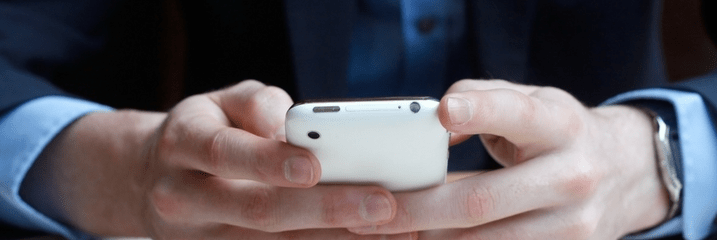There’s one big thing that’s killing our ability to focus and give our work the attention it requires: Digital distraction — the overwhelming bombardment of text messages, emails, pop-ups, new feeds, and updates from which it is almost impossible to hide.
That’s a big problem, especially if you work in a profession like the law where just one mistake on a crucial filing could have serious consequences.
However, if you can break out of this so-called “digital haze,” then the benefits for both you and your firm could be enormous. Regain the ability to concentrate and give tasks the focus they require, and you’ll quickly find that both you and your colleagues can accomplish more.
Avoiding distractions is easier said than done, though. Here are ten practical and actionable tips to get you started on the path to distraction-free productivity.
#1. Write to-do lists
The key to a good to-do list is to avoid filling a page with every conceivable task you can think of. Instead, keep it feasible. The best to-do lists focus in on a few important tasks and rank order them in terms of “must do,” “should do,” and “could do.” Remember, too, to separate projects from tasks — your to-do list should have short, specific items that are achievable in a day.
Read more: The ultimate to-do list for busy legal professionals >>
#2. Schedule time to work
Usually, we use our calendar to organize meetings and other events. Few people use it to block out periods of time to focus on critical tasks and to indicate to others that they’d prefer not to be disturbed during these times. You’re far better at focusing on complex, cognitively intensive tasks in the morning, so try to push meetings into the afternoon.
#3. Exercise
Researchers are showing that physical activity can have profound effects on your brain. Even small amounts of exercise during the day, such as a lunchtime walk or a short stretching session, can boost memory, improve concentration, and even enhance creativity.
Read more: Quick yoga poses to make any break count >>
#4. Sleep well
If you’re regularly sleeping fewer than seven hours a night, then the chances are that you’re more likely to make mistakes than if you were well rested. A study in a major health journal recently found that a sleepless night contributes to a 20-32 percent increase in the number of errors made. So, focus on sleeping well to ensure that you’re on your game during the day.
Read more: 4 simple steps to getting better sleep >>
#5. Tidy up
Is your workspace a mess? What about your computer’s desktop? Your email inbox? It might seem trivial to spend time cleaning up, but there’s growing evidence that an organized work environment — both physically and digitally — is essential to your ability to focus. Try to a spend a few minutes at the end of every day tidying away stationery, papers, and other desk clutter.
Read more: Simple changes to make your office space more inspiring >>
#6. Schedule time for emails
Apparently, the average professional services office worker spends almost a third of their day reading and writing emails. Some people (perhaps you’re one of them) get literally hundreds of emails of each day. That sort of volume requires planning to manage. Turn off the automatic email alerts and schedule specific chunks of time to read emails to avoid distraction.
Read more: Email management tips for attorneys and paralegals >>
#7. Master your tools
Becoming familiar with the software and tools that you use every day, including learning some of the many time-saving short-cuts, can help you to achieve more during the day. Even if you’re an experienced user of tools like Microsoft Office or Adobe Acrobat, the chances are there are time-saving features you’re not aware of but could be benefiting from.
Read more: 15 tips and tricks for working faster in Word, Excel, and Outlook >>
#8. Use anti-distraction tools
To properly focus you need to stop the barrage of alerts, beeps, and updates. To an extent, you can do this by disabling email notifications and placing your cell phone out of sight. However, properly disconnecting may require blocking certain websites for defined periods of time. Try apps like Freedom, SelfControl, and Think to liberate yourself from digital annoyances.
#9. Mask background noise
Even if you didn’t get a fancy pair of sound-blocking headphones over the holidays, you can still take steps to minimize noise-based distractions. If your office is too loud, try some instrumental music (if classical music isn’t your thing, I find movie soundtracks work pretty well).
#10. Pick up the slack by outsourcing some tasks
If you’re totally swamped, but not to the extent that you need to hire a new member of staff, then it’s well worth considering outsourcing options. For example, One Legal offers a court filing concierge service — Email to File — where we will review, assemble and place your filings on your behalf.
Learn more: Have One Legal place your filing on your behalf >>








